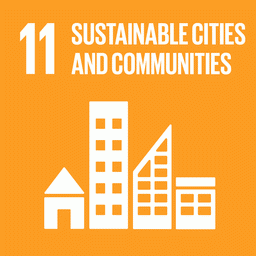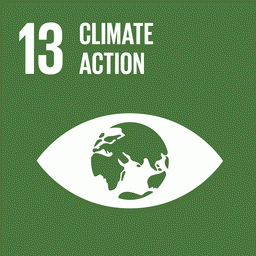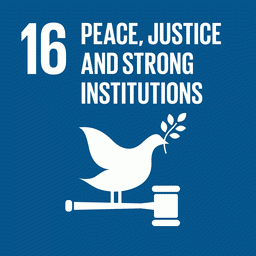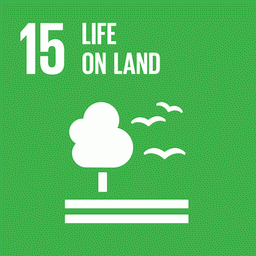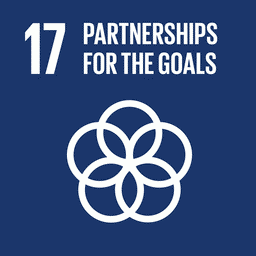By Lays Ushirobira*
Youth has been showing its power of mobilization to sow ideas, solutions, and choose the future of the country and the Amazon by leveraging the growth in the number of voters in Brazil – which so far has increased by 6.2% compared to 2018, according to the Superior Electoral Court. But beyond mobilization, young people have another lesson to share: solidarity between them and other generations, which brings even more strength to their movement to build a more environmentally sustainable, socially equitable, and economically prosperous world for all.
“We live together and we need to look after the well-being of everyone. We need politicians committed to life, dignity and people’s rights”, underlined activist Paulo Galvão in an interview with Amazoniar, an initiative of IPAM (Amazon Environmental Research Institute) to promote a global dialogue about the Amazon. In the fourth cycle, the project team talked to young people who are leading the Amazon socio-environmental agenda to understand their ambitions, dreams, and possible solutions to the challenges of the region.
Amazoniar closes this cycle by celebrating International Youth Day (August 12th) and standing with the international community to call for joint actions among all generations to achieve the Sustainable Development Goals, leaving no one behind. Check out the main messages from the young people who participated in the fourth cycle of the initiative:
1. Solutions for equitable, inclusive, and sustainable development need to be built collectively
The participation of all in spaces of discussion and decision-making regarding the socio-environmental agenda is essential to advance sustainable development. “If the movement is not collectively built, we will not get anywhere. What gives us hope is precisely the fact that we can build this space together and we are not alone”, said Paloma Costa, advisor at ISA (Instituto Socioambiental) and member of the UN Secretary-General’s Youth Advisory Group on Climate Change.
“There is an opportunity to make them more representative so that they actually express what Brazilian society is and needs”, said João Henrique Cerqueira, coordinator of institutional relations at Clima de Eleição. “Decisions will not represent the people’s interests unless these spaces are as diverse as the Brazilian people.”
2. The knowledge of the native and traditional peoples of the Amazon is essential for the development of humanity
Indigenous peoples and other traditional communities in the Amazon are at the forefront of the defense of the biome, and there is no way to talk about solutions for sustainable development without their knowledge. “We not only live in the forest, but we are the forest”, explained Txai Surui, activist from the Paiter Surui people. “We need to learn as much as possible from those who have been working for the climate agenda and try to adapt our development model and coexistence with the planet”, added Cerqueira.
“I have spoken much more with climate activists, territory activists, and young indigenous leaders who have taught me that we have an ancestral future. I think that is beautiful: looking to the future knowing how to value and protect what forms it. This ancestral future is possible as long as you carry the fight that has already begun”, said journalist Paulina Chamorro.
3. The standing forest and the climate balance must be a priority for all candidates and parties
Deforestation negatively affects Brazil and the entire planet. Thus, solutions for the conservation of the Amazon and the mitigation of climate change need to be part of all government plans, regardless of the candidates’ parties. “We are talking about the importance of thinking of climate and environmental issues as a non-partisan matter, which should be in all candidate’s plans”, highlighted Suruí.
“People must analyze these government programs and question the candidates to find out what they actually intend to do for the Amazon”, warned Ludmila Rattis, researcher at IPAM. “We need candidates who are aware of the Amazon’s problems and are committed to solutions and land governance.”
4. Citizen participation in public policy should be an everyday practice
According to Cerqueira, in Brazil, we have a tendency to follow the Executive Branch more, which ends up reducing the attention to the Legislative. “The Legislative should be the expression of the Brazilian people. However, the elected leaders we see in the National Congress or in any Legislative Assembly are very distant from people’s realities”, he said.
“Our local participation in public policy is very important”, said Chamorro. “It is easier to talk with the decision-makers at the local branch, the closest one to the population. The closer you are, higher are your chances of gaining access to a decision-making process and exerting some kind of influence on public policies”, added Cerqueira.
Along this same line, citizen participation should be part of the different forums for discussion, conception, preparation, and execution of public policies to be established for the Amazon region and climate protection.
5. We are all interdependent on the forest, and its conservation is a condition for the future of people and the planet
The elections represent an opportunity to resume and strengthen public policies that protect the Amazon forest and the Cerrado, the rights of its indigenous peoples and traditional communities, as well as to reestablish greater legal security, reduce deforestation, and actions to decarbonize the economy. With this, the country could recover its position as a world reference in sustainable development, ensure quality of life for all and attract economic and strategic opportunities that are compatible with the standing forest. “This might be the most important election in the world because what happens in Brazil this year is going to dictate what is going to happen for the rest of time for the human race. If the Amazon goes, we all go”, warned climate activist Tiana Jacout.
“The Amazon is complex; the same goes to its protection. We need to analyze and understand it because what happens there reverberates throughout Brazil and in other countries. We live in a globalized world, so one country depends on the production of another. It is a global issue. If the amount of carbon stored in the Amazon is emitted, the entire world will suffer”, explained Rattis.
Want to learn more about the current Amazon context?
For those interested in learning more about the current Amazon context and some of the possible solutions for its sustainable development, Amazoniar launched “Possible scenarios for the Amazon in the context of the 2022 Brazilian elections” (currently available only in Portuguese). The publication brings an analysis of three dimensions – deforestation, quality of life and geopolitics -, bringing two predictive scenarios: what could happen if the country maintains the current pace of destruction of the Amazon and if it adopts solutions for the conservation of the biome.
IPAM researcher Olivia Zerbini, one of the authors of the publication, brings a summary of the main points:
*Journalist and Communications Consultant at IPAM
